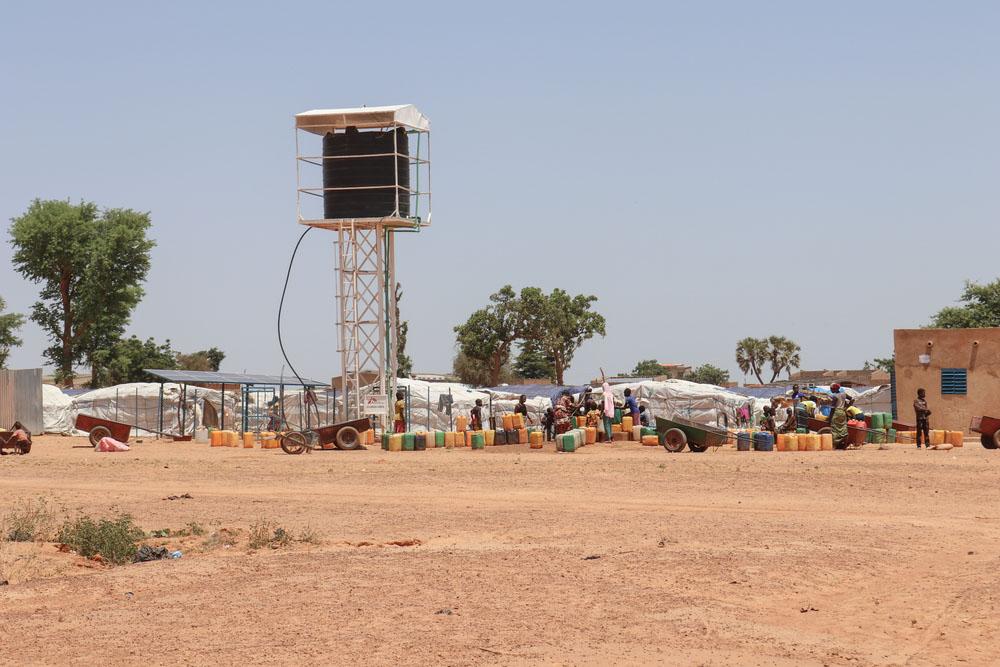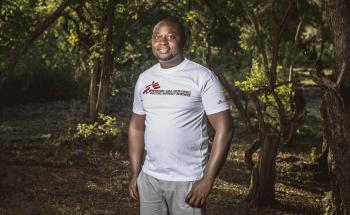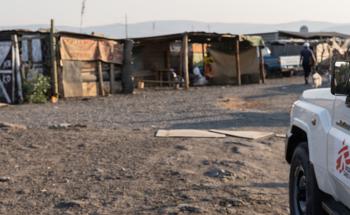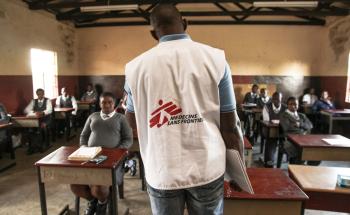The world must not turn its back on the humanitarian emergency in the Sahel region, says former MSF project coordinator Hama Amadou
“Burkina Faso is now at the heart of the crisis in the Sahel and millions of people are suffering daily in a very volatile and complex context. In the town of Djibo, the current situation clearly highlights the changing security and humanitarian situation that has grown out of the crisis in Mali over recent years.
I left the project I was coordinating in Dijibo six months ago, but reading the news on the most recent attack in early June and regularly chatting with colleagues who are still assisting the population there, I feel very sad and very concerned by the situation.
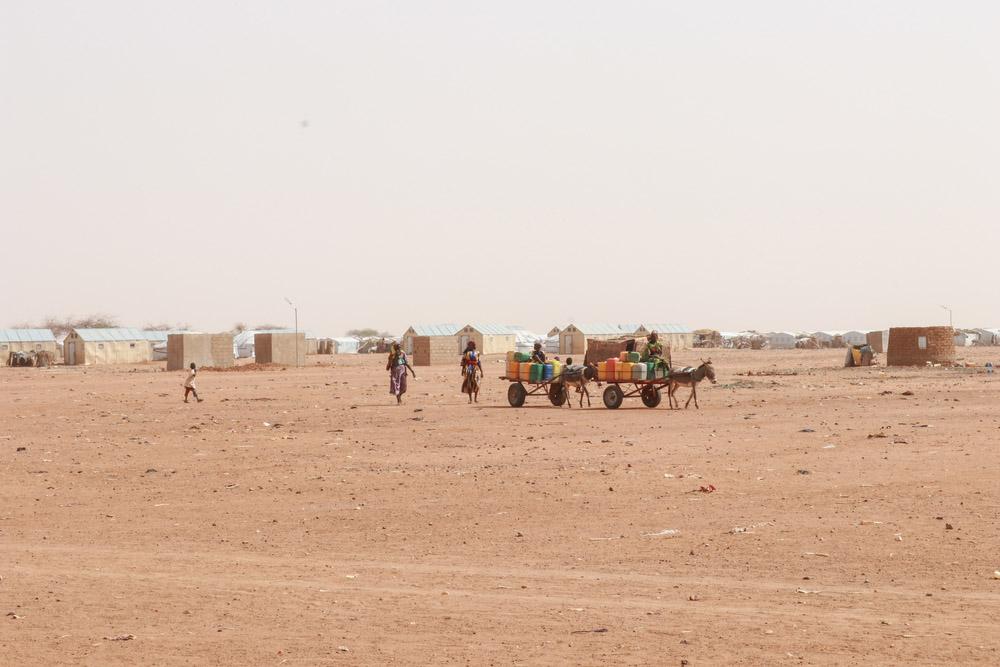
I spent more than a year in Djibo. When I arrived in February 2021, the security situation had somewhat improved and the city was enjoying a relative lull in violence compared to the previous months and its various alarming incidents, such as the kidnapping of humanitarian workers. Over those months, the region had also seen the killing of civilians and religious figures and attacks on military camps.
This ‘calm period’ lasted for about a year, from October 2020 to October 2021, when the conflict began rapidly to ramp up again. The fresh outbreak of violence saw a return of incidents perpetrated against the population and renewed fighting between armed groups and the Burkinabe Defence and Security Forces (FDS), which is now coming to a head.
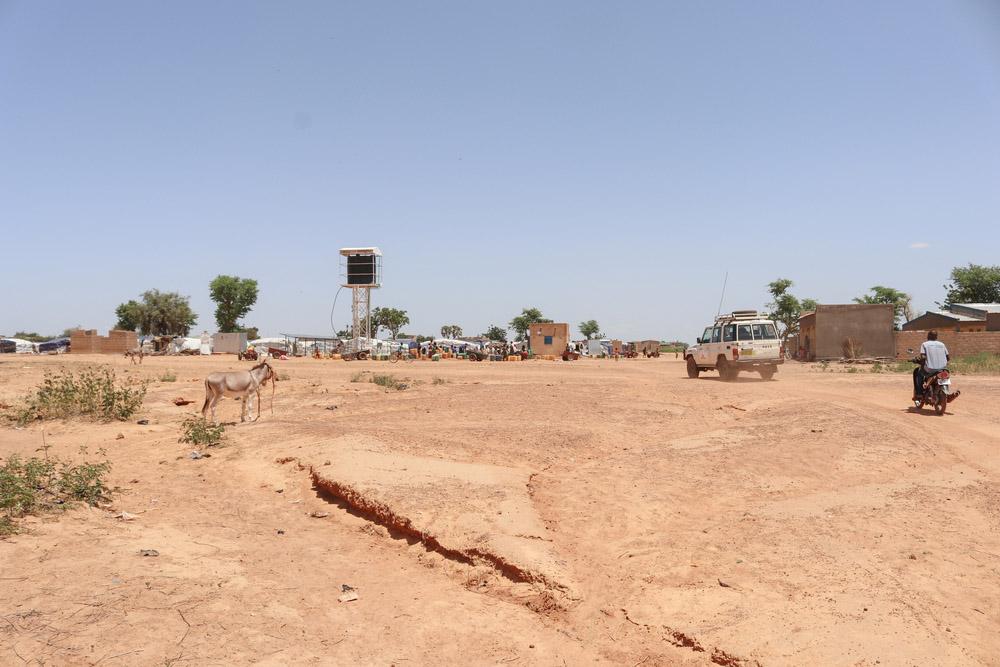
On that day, four people died in a vehicle that was transporting patients, caretakers and medical staff to provide essential medical care.Hama Amadou, former MSF project coordinator in Burkina Faso
I will always remember how shocked I was when I heard about an incident when a district ambulance drove over an improvised explosive device in early March 2021 while evacuating a pregnant woman to Ouagadougou. On that day, four people died in a vehicle that was transporting patients, caretakers and medical staff to provide essential medical care.
Since then, the situation has only got worse. The town of Djibo has been under siege since mid-February 2022, making it almost impossible for people, goods or humanitarian aid to get in. The road is unsafe, while humanitarian flights connecting Djibo with Ouagadougou are irregular and can be suspended for weeks at a time due to the insecurity. Travelling to surrounding areas has also become more difficult over the past few months.
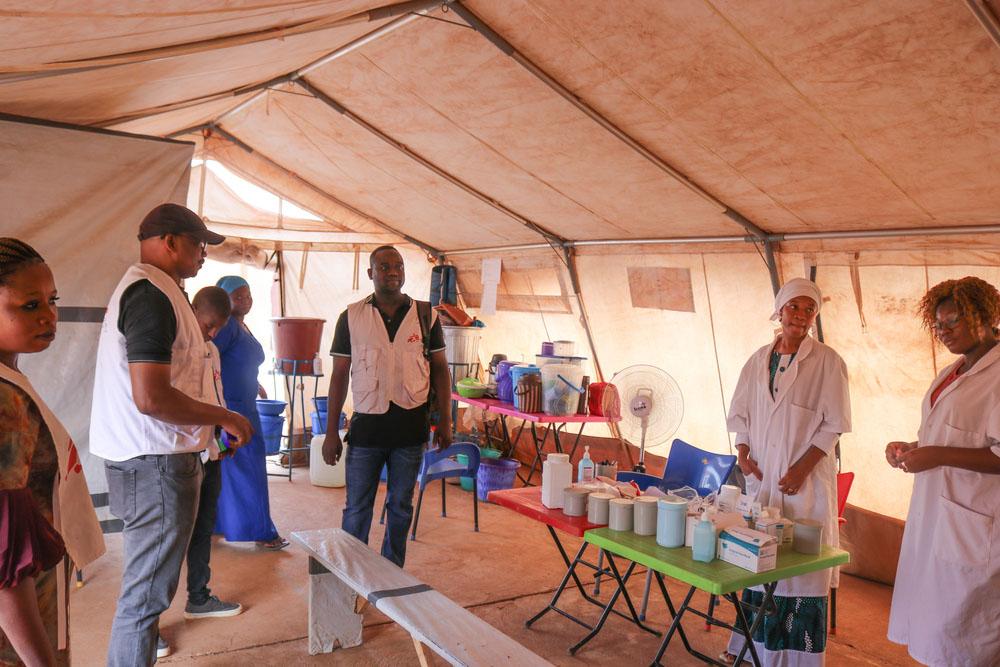
Previously home to around 60,000 people, Djibo’s population has now grown to around 350,000 as more and more people are displaced by the insecurity. MSF medical teams have been working in Djibo for four years now and have witnessed over the years the speed of the situation as it evolves and the exponential growth of people’s medical and humanitarian needs.
Access to healthcare has become increasingly complicated for the population. In the Sahel region where Djibo is located, 65 per cent of health centres are now closed or providing only minimal services due to the insecurity and a severe lack of staff. With the insecurity near the town, medical and humanitarian organisations like ours are often unable to reach people living on the outskirts of the city.
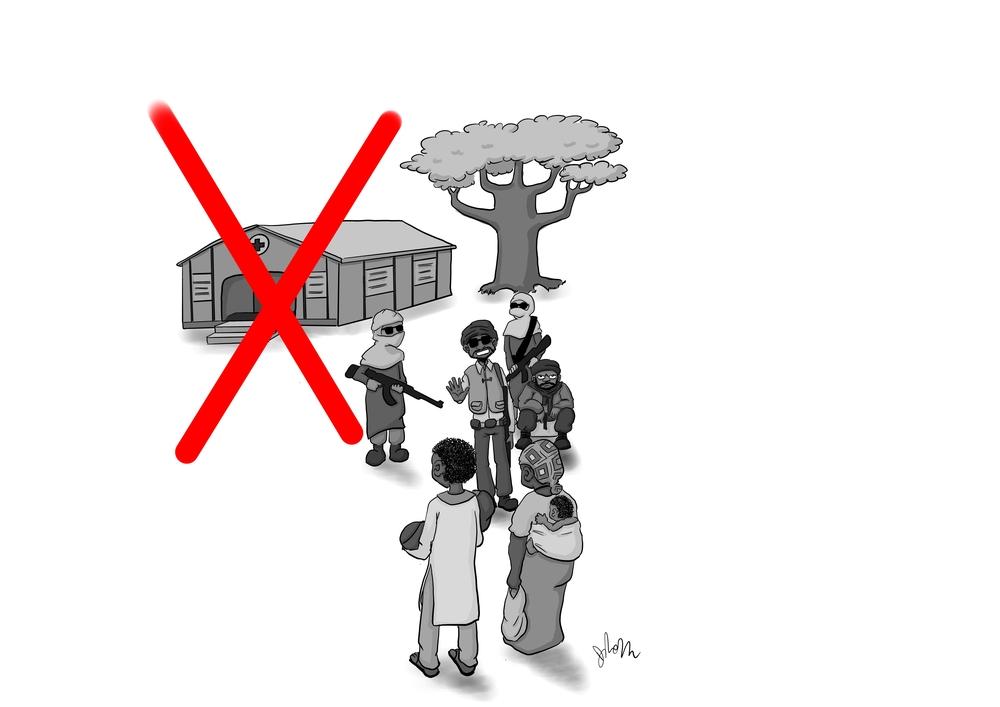
Our medical activities today mirror the reality that the people of Djibo are experiencing. In addition to the violence affecting the population, the city is facing other health problems. Many of the medical issues our teams deal with are a direct result of the lack of clean water, malnutrition, challenges accessing medications, and of delayed medical consultations, often due to lack of financial means. We have put in place water distribution activities, even though this is not our core area of response. MSF is one of the main humanitarian organisations distributing water in Djibo and we are often unable to meet the water needs of the whole population.
What is happening today and has been happening for months in Djibo reflects the situation throughout the country, where civilians, both local communities and displaced people, are the first to pay the price of the crisis. As the world turns its attention to the war in Ukraine and other humanitarian emergencies, the ongoing crisis in this region must not be forgotten. We must continue to tell these human stories and provide humanitarian medical assistance to suffering people. The international community must not divert its attention, funds and programmes away from this crisis.”
Hama Amadou was project coordinator for Doctors Without Borders (MSF) in Djibo, Burkina Faso, from February to December 2021.
